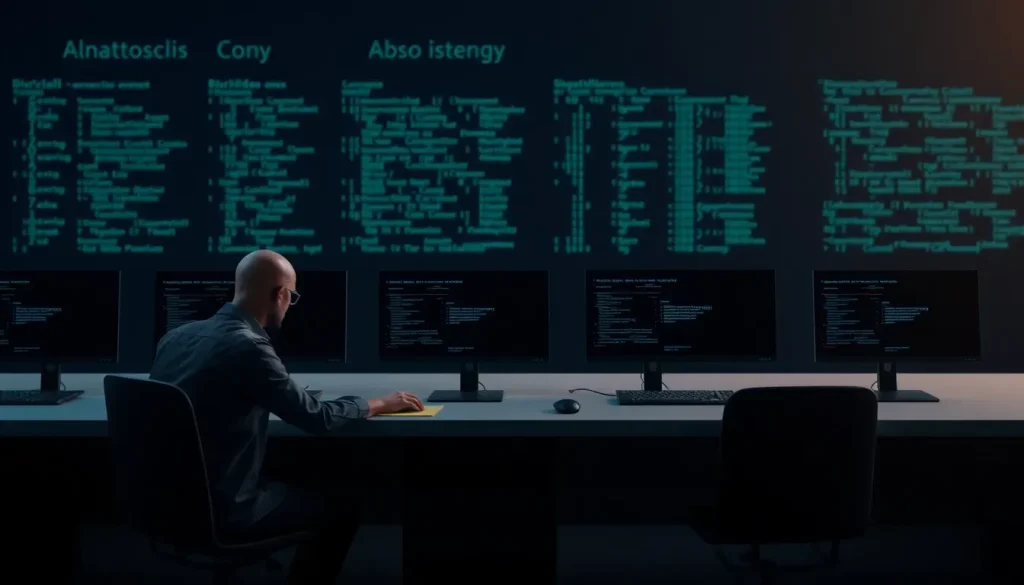EA Encourages Employees to Use AI for All Tasks, Including Code

As the gaming industry continues to evolve, the integration of artificial intelligence (AI) in game development has become a hot topic. Electronic Arts (EA), a giant in the gaming world, is at the forefront of this shift, pushing its workforce to adopt AI across various tasks. The implications of this move are profound, affecting not only the efficiency of development but also the employment landscape within the industry.
While AI promises improved productivity and efficiency, the reality often involves a complex interplay of benefits and challenges. For EA’s 15,000 employees, this push to rely heavily on AI has raised significant concerns about job security and the quality of work produced.
EA's AI Adoption Strategy
According to recent reports from Business Insider, EA has been encouraging its employees to utilize AI tools for a wide range of tasks. This includes:
- Generating code for games.
- Creating concept art.
- Providing managerial advice on sensitive topics like promotions and salary discussions.
While such a comprehensive AI approach aims to streamline operations, it has not been without its flaws. Many developers have reported that the AI-generated code often contains errors requiring extensive manual adjustments, creating additional workloads rather than reducing them. This contradiction raises questions about the efficacy of AI in creative fields.
Quality Control and Job Security Concerns
The reliance on AI tools extends to quality assurance (QA) roles, which traditionally involve human oversight. A former employee from Respawn, one of EA's prominent studios, shared that their position, along with around 100 others, was eliminated as the company began using AI to analyze playtester feedback. This shift highlights a troubling trend where human roles are replaced by automated systems, leading to broader implications for job security in the industry.
The fear of job displacement is palpable among developers, particularly those in creative roles such as concept artists and level designers. As AI tools become more integrated into the workflow, the necessity for human input could diminish, resulting in fewer opportunities for traditional roles.
The Mixed Reactions from Developers
Despite the potential risks, not all developers view AI as a negative force. Influential figures in the gaming industry, like Masahiro Sakurai, the creator of the Super Smash Bros. series, and Hideo Kojima, the mind behind Metal Gear Solid and Death Stranding, have expressed optimism about AI's role in game development. They argue that:
- Adequate use of generative AI can enhance efficiency.
- AI can help manage the increasing complexity of game design.
- Using AI allows developers to focus more on the creative aspects of their work.
For instance, Sakurai believes that generative AI can make large-scale development more sustainable, addressing the challenges posed by a shrinking talent pool in Japan. Similarly, Kojima views AI as a tool that can streamline processes, enabling creators to allocate more time to innovation and storytelling.
Future Implications for the Gaming Industry
The debate surrounding AI in game development is likely to influence future industry trends. As companies like EA continue to explore the capabilities of AI, the following implications may emerge:
- Changing Skill Sets: Employees may need to adapt to new technologies and processes, prioritizing skills in AI management and integration.
- Job Creation vs. Job Displacement: While some roles may vanish, new opportunities in AI oversight and development may arise.
- Ethical Considerations: The ethical implications of using AI, especially regarding labor practices and creative integrity, will become increasingly important.
As the industry grapples with these challenges, the balance between leveraging AI for efficiency and preserving human creativity will be crucial. Developers and companies must navigate this landscape thoughtfully to harness the benefits of AI while minimizing its risks.
The Role of AI in Shaping Workplace Dynamics
The implementation of AI technologies not only alters production processes but can also reshape workplace dynamics. This shift may lead to:
- Increased Collaboration: Teams may need to work closely with AI systems, fostering a new kind of partnership between human creativity and machine efficiency.
- Demand for Continuous Learning: Employees will need to engage in ongoing education to keep pace with AI advancements and their applications in game development.
- New Creative Possibilities: AI could enable developers to explore innovative ideas and concepts that were previously unattainable.
As this evolution unfolds, companies must ensure that their workforce is prepared and that ethical standards are upheld, fostering an environment where AI serves as a tool for enhancement rather than a source of anxiety.
Conclusion
As EA and other industry leaders continue to push the boundaries of AI integration, the future of game development remains uncertain yet exciting. The potential for AI to revolutionize workflows is clear, but it must be approached with caution and foresight. By investing in people and technology responsibly, the gaming industry can navigate this transformation effectively, ensuring that the human touch remains a vital part of the creative process.
For those interested in deeper insights into this ongoing conversation, check out the following video that discusses the implications of AI in gaming:




Leave a Reply